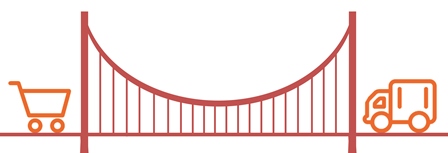If you work in procurement, how would you rate the relationship between your function and that of logistics within your organization? If the two departments collaborate harmoniously and you can honestly say they are integrated, your company is probably in the minority and for you, this article might be preaching to the converted. If not, I urge you to read on.
Missed Opportunities
Without enlightening intervention, procurement and logistics functions tend to make unilateral decisions aimed at optimizing different streams of value. For example, while logistics concentrates on the effectiveness and efficiency of transportation and storage, procurement is often squarely focused on reducing purchase prices and improving the cost of goods sold.
If procurement and logistics can collaborate more closely and work towards a full understanding of one another’s perspectives, outcomes could be achieved that derive maximum value for money. When silos exist and interaction between the two departments is unstructured however, these opportunities will forever be missed.
How to Build Bridges Between Procurement and Logistics
Bringing your department and logistics closer together is something which must be initiated at executive level. However, knowing what it takes to build the bridges and unlock value is something worth being aware of, whatever your role. The more procurement professionals see the benefits and have the knowledge of how they might be achieved, the greater the chances of procurement/logistics integration evolving from best practice into a standard.
With that in mind, here are some of the ways in which a company can nurture collaboration and alignment between its logistics and procurement functions:
- Implement a hierarchy where both teams report to the same supply chain executive
- Develop a vision, mission and set of values/rewards common to procurement and logistics
- Use multi-functional teams (procurement, logistics and other supply chain functions) to make strategic purchasing decisions
- Employ KPIs which measure procurement and logistics performance against a common set of objectives
Of course there will always be trade-offs between cost (procurement) and quality (logistics) objectives, but collaboration and open dialogue will at least enable those trade-offs to be made objectively and therefore, result in decisions optimised for the greatest overall business value. Invariably, companies which have found the way to properly integrate procurement and logistics have strengthened their competitive capabilities as a result.
Is Your Company In the Enlightened Minority?
If you have made it to the end of this article, the answer is probably “not yet”, in which case you might want to print a copy and place it strategically to be found by your CPO. If you are the CPO, I’d love to hear your experiences and the challenges you face (or have faced) on the path to integrating procurement and logistics.



Trackbacks/Pingbacks